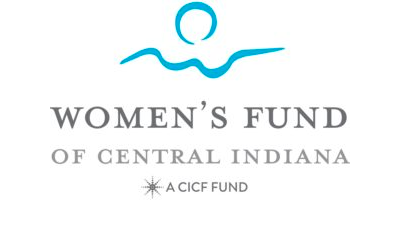Written by Brandi Davis-Handy. Brandi is the Chief Marketing and Communications Officer at Project Lead The Way. She is a member of Women’s Fund Sage Society and the Women’s Fund Engagement Committee.
Eleanor Bumpurs, Aiyana Stanley Jones, Rekia Boyd, Renisha McBride, Yvette Smith, Gabriella Nevarez, Korryn Gaines, Charleena Lavon Lyles, Atatiana Jefferson, and Breonna Taylor
Ten names are read aloud followed by a moment of silence. The last name is likely more recognizable to the attendees of the Women’s Fund of Central Indiana Town Hall: Justice for Black Americans Must Include Women and Girls. Breonna Taylor is the 26-year-old Black woman who was shot and killed in her home after what has been described as a “botched drug raid” intended for someone else who lived miles away.
All ten women died at the hands of law enforcement or those seeking to do the job of law enforcement as described by moderator Tamara Winfrey-Harris, vice president of community leadership and effective philanthropy at Central Indiana Community Foundation. Winfrey-Harris is also a writer and speaker and most recently was featured in The Atlantic with her article “The Reckoning Will Be Incomplete Without Black Women and Girls.”
The town hall discussion was centered around the topic of Winfrey-Harris’ article, which is focused on how Black women and girls are typically forgotten and/or silenced in conversations about Black Lives Matter, racial justice and equity.
Winfrey addressed the barriers Black girls face early on and the stereotypes they are plagued by as they become the fastest growing group in the juvenile justice system.
OFTEN FORGOTTEN
Black girls face stereotypes, barriers and injustices early on. Dr. Carolyn Strong, a motivational educator and founder of BulliesStink.com, discussed how Black girls are often disciplined more aggressively than others in school. She went on to discuss how resource officers in schools are used as an extension of rule enforcement instead of utilizing them when someone commits an actual crime.
“It affects the fact that Black girls are over suspended and it affects the fact that Black girls are more likely to get violations for dress and it affects the way Black girls are expected to move in classrooms.”
Often times the impact of the experiences of Black girls goes overlooked. The panel discussed how mental health needs are many times unmet and discipline is emphasized over counseling.
“People haven’t taken the time to figure out the emotional toll,” said Dr. Strong. “Now we are seeing Black women with health issues that Dr. Chanequa Walker-Barnes argues are directly related to this network of stressors that Black women experience..”
Intersectionality was another point discussed during the forum as Black women face oppression due to both race and gender.
“No one views the mental health of Black girls as something they are concerned about,” said Dr. Tyfanni Monford Dent, licensed psychologist and author.
Dr. Dent is the author of four books: Girls Got Issues: A Woman’s Guide to Self-discovery & Healing, You Got This! A Girl’s Guide to Growing Up, Reclaiming Me: Beginning My Journey to Overcoming Human Trafficking (available as a free PDF download for therapists) and Black Girl: Unapologetically. She described how no one is talking about the issues that face Black girls and women and the effects of the overall lack of outrage.
“It minimizes our experiences and minimizes our concerns and we have no place to go.” Dr. Dent also described the disparities she sees in the juvenile justice system and the importance of how we frame situations. She recalled a meeting where the behavior of two girls were discussed and the Black girl was referred to as being resistant and manipulative, and the white girl was referred to as struggling to engage and trying to utilize her inner strength to impact the system. “When you use terms like resistant and manipulative that indicates there is a need to elevate, amplify, or go to the next level of punishment,” said Dr. Dent.
WHERE DO WE GO FROM HERE?
The women closed out the discussion by sharing actionable steps for the future.
- We must first acknowledge there is a problem.
- Educate yourself. There are a number of resources available to learn more about topic of justice and reconciliation. Here are a few shared during the discussion:
African American Policy Forum, (Learn more about the #sayhername campaign)
“The Reckoning Will Be Incomplete Without Black Women and Girls” written by Tamara Winfrey Harris and featured in The Atlantic
Black Girls Matter: Pushed Out, Overpoliced and Underprotected
The Resilience Factor: A Key to Leadership in African American and Hispanic Girls - Continue to support philanthropy. Both the Central Indiana Community Foundation and the Women’s Fund have transitioned to a new equity framework. You can learn more about this commitment here.
